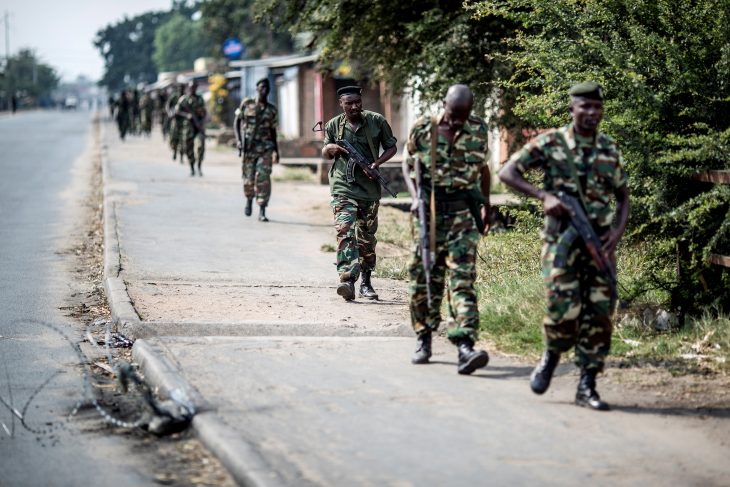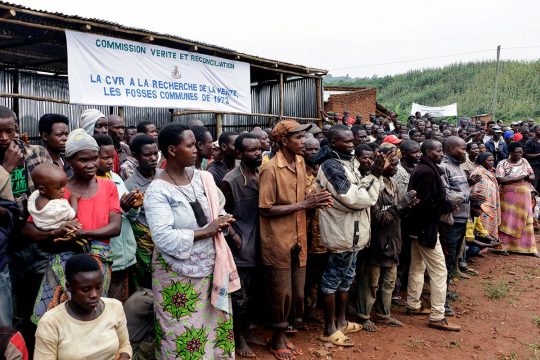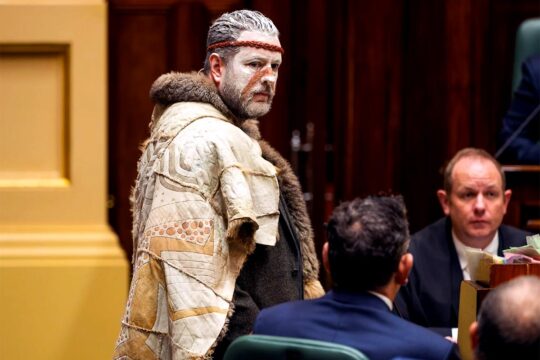Antoine Kaburahe is director of Iwacu (meaning “at home” in the Burundian language), the last surviving independent media group in Burundi. In early September Willy Nyamitwe, chief communications advisor to President Pierre Nkurunziza called Iwacu journalists “tricksters” and “crooks” after they published an article he did not like. Two months later Antoine Kaburahe was summoned to the Prosecutor’s office in Bujumbura in connection with a case on the failed May coup attempt. Now in exile in Belgium, Iwacu’s director told JusticeInfo.net in this interview that Burundi’s independent media has been “traumatized” by a “virtually suicidal” regime.
JusticeInfo.net: What is the current situation of the Iwacu group? Under what conditions is the team working?
Antoine Kaburahe: First I want to salute the courage of the editorial team who are continuing to work in very difficult conditions. Ever since that tragic night in May when the private radios stations were destroyed, the independent media has been traumatized. So Iwacu journalists are working in a very tense context. Of course I am still present in a way, Internet makes it easier, but I am very pleased that my departure has not affected the operation of Iwacu too much. That shows it is now a sustainable institution. I get some pride from that, but the credit goes mostly to the journalists on the ground.
JusticeInfo.net: A month ago you were summoned personally to the Prosecutor’s office in Bujumbura. Was this in relation to the failed coup in May, as reported in the media?
AK: I was summoned in mid-November. I think I do not need to say that I did not have anything to do with the failed coup either directly or indirectly. After I was questioned the magistrate, who was very correct, told me I could go home. I was due to go to Belgium and I was not banned from leaving Burundi. Then the Prosecutor issued a second summons and my lawyer went to explain that I was travelling. I then learned that there was an extradition request out for me, and I was not the only one. Eight other media directors are in the same situation as me, accused of participating in the putsch.
JusticeInfo.net: How do you explain the Burundian government’s intransigence in the face of the many appeals from neighbouring countries, the African Union, the European Union and the United Nations?
AK: In fact it is very hard to understand its position, which is alienating it from a lot of support. But if we turn back the page of our country’s history a bit, we will recall that the CNDD-FDD (Nkurunziza’s party) did not benefit from the Arusha “therapy”. The Arusha process allowed some of Burundi’s political class to learn the virtues of dialogue. But those in power seem to have adopted a strong-arm stance rather than compromise. Some observers think the party has a very militaristic view of power and has not really got rid of their reflexes from when they were rebels in the bush.
JusticeInfo.net: Is the regime getting secret support, or is it because the international community has not been sufficiently firm up to now?
AK: There is no secret support that can replace normal development aid to Burundi, for example from the European Union. Other support might plug a gap temporarily but given the large sums the country gets from development projects, it seems to me almost suicidal to put oneself in a situation where one can no longer receive it. As for the international community being “firm”, don’t forget that this international community is amorphous and has trouble finding a common stance. The differences in the UN Security Council are a good example of that. Don’t forget either that this international community has its own concerns. The European Union is worried about its migrant crisis and the risk of Islamic terrorism on its soil, Russia is preoccupied with Syria, China with its economic crisis. So in short little Burundi which has hardly any strategic resources doesn’t interest them very much.
JusticeInfo.net: Is the government the only one responsible for the violence in the country or is the opposition also involved?
AK: No it’s not just the government that is responsible. But like in the latest attacks (on military facilities), it is civilians that have paid the price rather than the attackers.
JusticeInfo.net: What do you say to Bujumbura’s allegations that Rwanda is training and arming Burundian refugees to attack their country?
AK: I don’t have enough objective information at the moment to comment on that.
JusticeInfo.net: Do you think the time has come for the UN to deploy a peacekeeping force to Burundi, whether the Nkurunziza regime likes it or not?
AK: Yes, absolutely! And then if a UN force comes to stabilize the country it’s at least partly the government that will benefit. I do not understand why the regime continues to court the anger of the AU and the international community…







